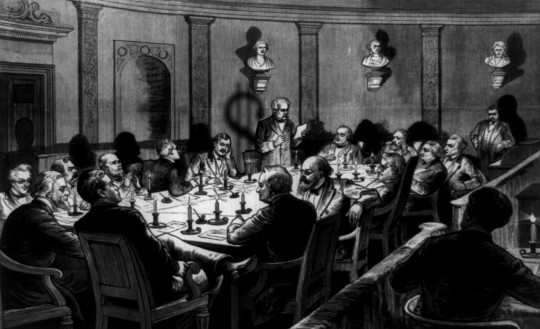#SEC
Text
Amazon’s financial shell game let it create an “impossible” monopoly

I'm on tour with my new, nationally bestselling novel The Bezzle! Catch me in TUCSON (Mar 9-10), then San Francisco (Mar 13), Anaheim, and more!

For the pro-monopoly crowd that absolutely dominated antitrust law from the Carter administration until 2020, Amazon presents a genuinely puzzling paradox: the company's monopoly power was never supposed to emerge, and if it did, it should have crumbled immediately.
Pro-monopoly economists embody Ely Devons's famous aphorism that "If economists wished to study the horse, they wouldn’t go and look at horses. They’d sit in their studies and say to themselves, ‘What would I do if I were a horse?’":
https://pluralistic.net/2022/10/27/economism/#what-would-i-do-if-i-were-a-horse
Rather than using the way the world actually works as their starting point for how to think about it, they build elaborate models out of abstract principles like "rational actors." The resulting mathematical models are so abstractly elegant that it's easy to forget that they're just imaginative exercises, disconnected from reality:
https://pluralistic.net/2023/04/03/all-models-are-wrong/#some-are-useful
These models predicted that it would be impossible for Amazon to attain monopoly power. Even if they became a monopoly – in the sense of dominating sales of various kinds of goods – the company still wouldn't get monopoly power.
For example, if Amazon tried to take over a category by selling goods below cost ("predatory pricing"), then rivals could just wait until the company got tired of losing money and put prices back up, and then those rivals could go back to competing. And if Amazon tried to keep the loss-leader going indefinitely by "cross-subsidizing" the losses with high-margin profits from some other part of its business, rivals could sell those high margin goods at a lower margin, which would lure away Amazon customers and cut the supply lines for the price war it was fighting with its discounted products.
That's what the model predicted, but it's not what happened in the real world. In the real world, Amazon was able use its access to the capital markets to embark on scorched-earth predatory pricing campaigns. When diapers.com refused to sell out to Amazon, the company casually committed $100m to selling diapers below cost. Diapers.com went bust, Amazon bought it for pennies on the dollar and shut it down:
https://www.theverge.com/2019/5/13/18563379/amazon-predatory-pricing-antitrust-law
Investors got the message: don't compete with Amazon. They can remain predatory longer than you can remain solvent.
Now, not everyone shared the antitrust establishment's confidence that Amazon couldn't create a durable monopoly with market power. In 2017, Lina Khan – then a third year law student – published "Amazon's Antitrust Paradox," a landmark paper arguing that Amazon had all the tools it needed to amass monopoly power:
https://www.yalelawjournal.org/note/amazons-antitrust-paradox
Today, Khan is chair of the FTC, and has brought a case against Amazon that builds on some of the theories from that paper. One outcome of that suit is an unprecedented look at Amazon's internal operations. But, as the Institute for Local Self-Reliance's Stacy Mitchell describes in a piece for The Atlantic, key pieces of information have been totally redacted in the court exhibits:
https://www.theatlantic.com/ideas/archive/2024/02/amazon-profits-antitrust-ftc/677580/
The most important missing datum: how much money Amazon makes from each of its lines of business. Amazon's own story is that it basically breaks even on its retail operation, and keeps the whole business afloat with profits from its AWS cloud computing division. This is an important narrative, because if it's true, then Amazon can't be forcing up retail prices, which is the crux of the FTC's case against the company.
Here's what we know for sure about Amazon's retail business. First: merchants can't live without Amazon. The majority of US households have Prime, and 90% of Prime households start their ecommerce searches on Amazon; if they find what they're looking for, they buy it and stop. Thus, merchants who don't sell on Amazon just don't sell. This is called "monopsony power" and it's a lot easier to maintain than monopoly power. For most manufacturers, a 10% overnight drop in sales is a catastrophe, so a retailer that commands even a 10% market-share can extract huge concessions from its suppliers. Amazon's share of most categories of goods is a lot higher than 10%!
What kind of monopsony power does Amazon wield? Well, for one thing, it is able to levy a huge tax on its sellers. Add up all the junk-fees Amazon charges its platform sellers and it comes out to 45-51%:
https://pluralistic.net/2023/04/25/greedflation/#commissar-bezos
Competitive businesses just don't have 45% margins! No one can afford to kick that much back to Amazon. What is a merchant to do? Sell on Amazon and you lose money on every sale. Don't sell on Amazon and you don't get any business.
The only answer: raise prices on Amazon. After all, Prime customers – the majority of Amazon's retail business – don't shop for competitive prices. If Amazon wants a 45% vig, you can raise your Amazon prices by a third and just about break even.
But Amazon is wise to that: they have a "most favored nation" rule that punishes suppliers who sell goods more cheaply in rival stores, or even on their own site. The punishments vary, from banishing your products to page ten million of search-results to simply kicking you off the platform. With publishers, Amazon reserves the right to lower the prices they set when listing their books, to match the lowest price on the web, and paying publishers less for each sale.
That means that suppliers who sell on Amazon (which is anyone who wants to stay in business) have to dramatically hike their prices on Amazon, and when they do, they also have to hike their prices everywhere else (no wonder Prime customers don't bother to search elsewhere for a better deal!).
Now, Amazon says this is all wrong. That 45-51% vig they claim from business customers is barely enough to break even. The company's profits – they insist – come from selling AWS cloud service. The retail operation is just a public service they provide to us with cross-subsidy from those fat AWS margins.
This is a hell of a claim. Last year, Amazon raked in $130 billion in seller fees. In other words: they booked more revenue from junk fees than Bank of America made through its whole operation. Amazon's junk fees add up to more than all of Meta's revenues:
https://s2.q4cdn.com/299287126/files/doc_financials/2023/q4/AMZN-Q4-2023-Earnings-Release.pdf
Amazon claims that none of this is profit – it's just covering their operating expenses. According to Amazon, its non-AWS units combined have a one percent profit margin.
Now, this is an eye-popping claim indeed. Amazon is a public company, which means that it has to make thorough quarterly and annual financial disclosures breaking down its profit and loss. You'd think that somewhere in those disclosures, we'd find some details.
You'd think so, but you'd be wrong. Amazon's disclosures do not break out profits and losses by segment. SEC rules actually require the company to make these per-segment disclosures:
https://scholarship.law.stjohns.edu/cgi/viewcontent.cgi?article=3524&context=lawreview#:~:text=If%20a%20company%20has%20more,income%20taxes%20and%20extraordinary%20items.
That rule was enacted in 1966, out of concern that companies could use cross-subsidies to fund predatory pricing and other anticompetitive practices. But over the years, the SEC just…stopped enforcing the rule. Companies have "near total managerial discretion" to lump business units together and group their profits and losses in bloated, undifferentiated balance-sheet items:
https://www.ucl.ac.uk/bartlett/public-purpose/publications/2021/dec/crouching-tiger-hidden-dragons
As Mitchell points you, it's not just Amazon that flouts this rule. We don't know how much money Google makes on Youtube, or how much Apple makes from the App Store (Apple told a federal judge that this number doesn't exist). Warren Buffett – with significant interest in hundreds of companies across dozens of markets – only breaks out seven segments of profit-and-loss for Berkshire Hathaway.
Recall that there is one category of data from the FTC's antitrust case against Amazon that has been completely redacted. One guess which category that is! Yup, the profit-and-loss for its retail operation and other lines of business.
These redactions are the judge's fault, but the real fault lies with the SEC. Amazon is a public company. In exchange for access to the capital markets, it owes the public certain disclosures, which are set out in the SEC's rulebook. The SEC lets Amazon – and other gigantic companies – get away with a degree of secrecy that should disqualify it from offering stock to the public. As Mitchell says, SEC chairman Gary Gensler should adopt "new rules that more concretely define what qualifies as a segment and remove the discretion given to executives."
Amazon is the poster-child for monopoly run amok. As Yanis Varoufakis writes in Technofeudalism, Amazon has actually become a post-capitalist enterprise. Amazon doesn't make profits (money derived from selling goods); it makes rents (money charged to people who are seeking to make a profit):
https://pluralistic.net/2023/09/28/cloudalists/#cloud-capital
Profits are the defining characteristic of a capitalist economy; rents are the defining characteristic of feudalism. Amazon looks like a bazaar where thousands of merchants offer goods for sale to the public, but look harder and you discover that all those stallholders are totally controlled by Amazon. Amazon decides what goods they can sell, how much they cost, and whether a customer ever sees them. And then Amazon takes $0.45-51 out of every dollar. Amazon's "marketplace" isn't like a flea market, it's more like the interconnected shops on Disneyland's Main Street, USA: the sign over the door might say "20th Century Music Company" or "Emporium," but they're all just one store, run by one company.
And because Amazon has so much control over its sellers, it is able to exercise power over its buyers. Amazon's search results push down the best deals on the platform and promote results from more expensive, lower-quality items whose sellers have paid a fortune for an "ad" (not really an ad, but rather the top spot in search listings):
https://pluralistic.net/2023/11/29/aethelred-the-unready/#not-one-penny-for-tribute
This is "Amazon's pricing paradox." Amazon can claim that it offers low-priced, high-quality goods on the platform, but it makes $38b/year pushing those good deals way, way down in its search results. The top result for your Amazon search averages 29% more expensive than the best deal Amazon offers. Buy something from those first four spots and you'll pay a 25% premium. On average, you need to pick the seventeenth item on the search results page to get the best deal:
https://scholarship.law.bu.edu/faculty_scholarship/3645/
For 40 years, pro-monopoly economists claimed that it would be impossible for Amazon to attain monopoly power over buyers and sellers. Today, Amazon exercises that power so thoroughly that its junk-fee revenues alone exceed the total revenues of Bank of America. Amazon's story – that these fees barely stretch to covering its costs – assumes a nearly inconceivable level of credulity in its audience. Regrettably – for the human race – there is a cohort of senior, highly respected economists who possess this degree of credulity and more.
Of course, there's an easy way to settle the argument: Amazon could just comply with SEC regs and break out its P&L for its e-commerce operation. I assure you, they're not hiding this data because they think you'll be pleasantly surprised when they do and they don't want to spoil the moment.

If you'd like an essay-formatted version of this post to read or share, here's a link to it on pluralistic.net, my surveillance-free, ad-free, tracker-free blog:
https://pluralistic.net/2024/03/01/managerial-discretion/#junk-fees

Image:
Doc Searls (modified)
https://www.flickr.com/photos/docsearls/4863121221/
CC BY 2.0
https://creativecommons.org/licenses/by/2.0/
#pluralistic#amazon#ilsr#institute for local self-reliance#amazon's antitrust paradox#antitrust#trustbusting#ftc#lina khan#aws#cross-subsidization#stacy mitchell#junk fees#most favored nation#sec#securities and exchange commission#segmenting#managerial discretion#ecommerce#technofeudalism
590 notes
·
View notes
Text
I think the Daleks are one of the best representations of fascist ideology and the failing thereof. Mainly in that they're really pathetic more than anything. They're sad little creatures locked safely away from the world inside their shells and desensitised to everything but hate. They could never build a real culture of their own yet they are utterly and dogmatically convinced of their own superiority. They are an entire civilisation built solely to destroy and categorically incapable of anything else (literally. Their design is comically inefficient). The single smartest Dalek who ever lived ran the numbers and came to the inescapable conclusion that their species is doomed to failure and the only way for them to survive is to rethink their ways... so they killed him.
2K notes
·
View notes
Text
90 notes
·
View notes
Text

pleureur,
pastel sec, mine de plomb
sur papier recyclé 300g
2023,
Marie LEON
@leon_evangelion
#art#pastel#sec#pleureur#poesie#weaping#willow#dessin#illustration#couleur#arbre#flot#noeud#silhouette#pluie#symbole#bibou#paris#marie#léon#artiste#france#femme#fantaisy#enchantement#spells#poètesse#poème#drawing#draw
133 notes
·
View notes
Photo


25 notes
·
View notes
Text
HAPPY BIRTHDAY ME
One quick reblog of this post from you would be the best present imaginable!










I’ve had this art blog for 2,5 years now. And it’s still fully about Skaro! Mostly about Davros and other kaleds.
It’s a little but passionate corner of tumblr, and I love it^^
#doctor who#doctor who fanart#fanart#skaro#kaled#davros#shan#nyder#i davros#genesis of the daleks#dalek#dalek sec#sec#dalek caan#caan#themoss’art#sketch#digital art
31 notes
·
View notes
Text
oh my god i just saw the ole miss lsu game…
first, praying for poa and hoping God grants her a speedy recovery.
this is an active and prevalent problem in every single conference with pretty much every single referee - stop letting players get away with literal murder.
y’all wait to call a flagrant or intentional until someone’s on the floor bleeding from their face or until someone gets a concussion or not even then. that shit needs to be stopped before it even starts. yes, the game is a contact sport. yes, these women are going to play physical.
but the shit that happened in conference tournament play yesterday should never have fucking happened.
and on top of that: where is any sense of urgency from medical personnel? a player is on the floor, not getting up, and the only people on that are her teammates? you can’t tell me that’s protocol.
the ncaa needs to start fucking caring about these women more than they do right now, because this is bullshit.
23 notes
·
View notes
Text
Oligarchs will run amok.
34 notes
·
View notes
Text


Given how much I talk up the alien design in The Vesta Clinic I do absolutely see the irony in making an avatar for the faceless, voiceless AI. But consider this: I care about him.
#the vesta clinic#SEC#I imagine said avatar to be tiny though. Dragonfly sized. However I think it's very important he be able to flip people off#█████ draws#I'm not much of an artist do be kind
214 notes
·
View notes
Text

let’s go hogs! 🐖
31 notes
·
View notes
Text




sec media day was truly a blessing
179 notes
·
View notes
Text
My toxic trait is that I loved like. every single shitty hated old school video game cartoon
#prom is talking#no exaggeration either. listen to me reader. i LOVED the zelda cartoon#i was the super mario brothers super shows biggest fan#kirby anime? yes please. one of my favorite theme songs i have it memorized in my heart#i love Spanish dad metaknight are you insane#both sonic cartoons?#duh.#i used to play sonic adventure lined up with how sonic x was airing.#as closely as i could anyway#i still have soooo many fond memories tho with smbss specificially. that shit was hilarious#sorry i mean all sonic cartoons i forgot about sonic underground flr a sex#sec
8 notes
·
View notes
Text
8 SEC Championships in 10 years and a class act after what happened in the 4th Q.
#South Carolina#gamecocks#south carolina gamecocks#sec#lsu#lsu tigers#dawn staley#ncaa#ncaa women’s basketball
9 notes
·
View notes
Text
SEC SUPREMACY, MOTHERHUGGERS!!! ❤️🐔🔥
8 notes
·
View notes
Text
Big Business can't stop its illegal, fantastically lucrative gossiping

Seven years ago, I called Leonard Cohen’s Everybody Knows “the perfect anthem for our times.”
Everybody knows the war is over
Everybody knows the good guys lost
Everybody knows the fight was fixed
The poor stay poor, the rich get rich
That’s how it goes
Everybody knows
https://memex.craphound.com/2016/11/11/leonard-cohen-wrote-the-perfect-anthem-for-our-times/
If you’d like an essay-formatted version of this post to read or share, here’s a link to it on pluralistic.net, my surveillance-free, ad-free, tracker-free blog:
https://pluralistic.net/2023/03/16/compulsive-cheaters/#rigged
That was just after Cohen died, and while the world seems to want to settle on Hallelujah as his totemic song, Everybody Knows keeps inserting itself into the discourse, in the most toxic, hope-draining way possible. Whenever some awful scandal involving the great and the good breaches, we’re told that “everybody knew” already, so let’s move on.
This current has been running through our society for decades now. Remember when the Snowden leaks hit and a yawning chorus of nihilists told us that they knew already and so should anyone else with the smallest iota of sophistication? Back then Jay Rosen coined a rejoinder to this counsel of despair: “Don’t savvy me”:
https://twitter.com/jayrosen_nyu/status/344825874362810369
Everybody knows. It’s what we heard after the Panama Papers. Swissleaks. Luxleaks. The Paradise Papers. Everybody knows! It’s what the nothing-to-see-here crowd said about Propublica’s explosive IRSLeaks, back in 2021:
https://pluralistic.net/2021/06/15/guillotines-and-taxes/#carried-interest
The leaks revealed the tax-dodges of the richest and most powerful people in America, which were jaw-dropping in their audacity and shamelessness. Sure, maybe you suspected that the 400 richest people in America paid less tax than you — but did you really guess that the means by which they did this was through taking massive deductions on their elite hobbies?
https://pluralistic.net/2022/04/13/taxes-are-for-the-little-people/#leona-helmsley-2022
Maybe “everybody knows” that the game is rigged, but did you know how? Like, did you know that REITs — a tax shelter for mom-and-pop investors who buy an income property for their retirement — have become a primary vehicle for gutting unions at hotels, slashing wages and imposing brutal, dangerous working conditions?
https://pluralistic.net/2022/03/01/reit-modernization-act/#reit-makes-might
The leaks are cumulative. By combining data from one leak with another, we can build out a far more detailed picture of the conspiracy — and it is a conspiracy — among the utlrawealthy and their Renfields in the law, real-estate and accounting trades to duck their responsibilities and mound ever-more treasure on their hoards.
Take the Jersey Offshore leaks (2020), comprising the internal memos of La Hougue, a fantastically crooked firm of fixers on the Isle of Jersey, one of the lawless tax-crime jurisdictions that the UK pretends it has no control over. La Hougue has a playbook, 11 tactics for lying about your taxes. The remarkable thing about these 11 tactics is how flimsy they are, how easy it is to penetrate their lies. When Parliament says it can’t possibly do anything about the criminal havens in the Channel, remember the Jersey Offshore leaks and remind yourself that not even Parliament is that credulous. They know. Everybody knows:
https://pluralistic.net/2021/06/20/la-hougue/#complexity
Why do working people think the Democrats are just another party for the ultra-rich? Maybe it’s Pelosi’s relentless opposition to meaningful curbs on insider trading. Or maybe it’s the kinds of politicians that the Democratic Machine likes to rally behind — like Tali Farhadian Weinstein, who raised millions in 2021, in large-money donations from Democratic finance-sector donors in her bid to become the DA of Manhattan. Farhadian Weinstein and her husband have more than $100m in annual income, and yet, paid no federal tax in 2013, 2015 and 2017. In 2014, they paid $6,584:
https://pluralistic.net/2021/06/17/quis-custodiet-irs/#trumps-taxes
Propublica isn’t done with the IRS Files. Today, they published a long investigation into ultra-rich corporate executives who buy and sell their competitors’ stock for massive profits with suspiciously precise timing. The data comes from 1099-B filings, which brokerages file with the IRS with each trade, but which the IRS doesn’t share with the SEC:
https://www.propublica.org/article/secret-irs-files-trading-competitors-stock
Here are some examples:
Ohio billionaire August Troendle, CEO of Medpace, repeatedly bought and sold shares of $Syneos — his company’s archrival, timing the transactions with a management shakeup that dropped the stock by 16% in one day, and an SEC investigation that crushed Syneos’s stock by 25%. His precision timing made him at least $2.3m in profit.
Isaac Larian, CEO of Bratz-maker MGA, made $28m trading shares in Mattel, MGA’s nemesis and frequent litigant — during a period when Mattel stock crashed by 57% (!). Larian boasts that “I made a LOT more money shorting Mattel stock than they did running a $4.5 billion toy company.”
Larian’s trades also involved some very precise timing. Sometimes, he took positions just before his own company announced its upcoming products, and others positions immediately preceded major disclosures from Mattel. Larian’s subordinates told Propublica that he is “is a boss with an endless appetite for information about his company and its competitors, constantly grilling subordinates on minutiae about the industry.”
Larian couldn’t explain the timing of these trades. His lawyer told Propublica that it was “false and defamatory” to suggest that he “possessed material, nonpublic information that Larian knew was obtained in breach of a duty.”
Next up is Gerald Boelte, founder and chair of the massive oil company LLOG. LLOG partners with other companies for its oil drilling. Companies like Stone Energy. Boelte bought a huge position in Stone the day before the company’s 2015 earnings report, in which they revealed an increase their reserves’ value, pulling in a 65% one day profit. He’d never bought shares in Stone before.
Boetle told Propublica, “I do not and have never traded on any material, non-public information of competitors, business partners or others… Any implication that I was investing based upon advance knowledge is therefore clearly false.”
Jim Sankey is CEO of Invue. He bought $3.2m worth of shares in his rival Checkpoint, while checkpoint was in secret negotiations to be acquired by CCL Industries. Sankey was already thoroughly connected to Checkpoint, having sold a $150m product line to them in 2007. There’s no record that he’d ever traded Checkpoint before. He made $2.3m. Sankey says “he did not know Checkpoint was going to be acquired.” He says that his company was not approached by Checkpoint as a potential acquirer.
Barry Wish was a board member of Ocwen, a company he co-founded. After the Great Financial Crisis, Ocwen bid unsuccessfully to buy $215b worth of Bank of America mortgages. The winning bidder was Nationstar. Three weeks before Nationstar’s winning bid was announced, Wish bought $600k worth of Nationstar shares. After the bid was announced, he sold them for for a $157k profit.
Wish told Propublica that he never traded competitors’ stock: “No, not at all.” Propublica read him the details of the trade from his leaked 1099-B. He said “You might see it, but I don’t have any recollection” and hung up.
Steven Grossman is a cardboard heir — a nepobaby who inherited Southern Container Corp from his grandpa. After he sold the company to Rock-Tenn for $1b in 2013, he stayed on as a senior exec. Over the next 5 years, he traded large blocks of shares in Rock-Tenn’s competitors, companies like Temple-Inland, a company that he made a 37% profit on after its acquisition was announced in 2011, one week after Grossman started buying its shares.
Grossman falsely told Propublica, “I haven’t traded stock since then.” IRS records show that Grossman continued to trade. Grossman also told Propublica that he had no role with Rock-Tenn, despite being on their payroll for five years. When asked about his extremely lucky timing buying and selling Temple-Inland, he said “That was 10 years ago” and hung up.
As Propublica’s Robert Faturechi and Ellis Simani write, Securities regulations have their origins in the crash of 1929, and the subsequent collapse in confidence in markets and capitalism, the sense that the system was rigged for the wealthy and political insiders. That is a pretty good summation of sentiment today:
https://pluralistic.net/2023/03/15/mon-dieu-les-guillotines/#ceci-nes-pas-une-bailout
It’s not just that corporate executives are corrupt, it’s that they’re lavishly, shamelessly, endlessly, incorrigibly corrupt. Take Canadian Pacific and Kansas City Southern, the sixth- and seventh-largest Class I railroads in the USA, whose merger was just approved by the Surface Transportation Board.
There are plenty of good reasons for the STB to have blocked this merger. The rail industry is already excessively concentrated, and its top execs are so convinced that they’re both too big to fail and too big to jail that they’re rendering entire towns permanently uninhabitable in order to eke out a few more points in profit:
https://pluralistic.net/2023/02/11/dinah-wont-you-blow/#ecp
But there are specific reasons to have blocked this merger, starting with the whistleblower report about CP and KCS executives illegally coming together for a three-day “retreat” at The Breakers hotel in Palm Beach, a notorious site for Republican operatives to collude with the business lobby:
https://prospect.org/infrastructure/transportation/2023-03-16-canadian-pacific-kansas-city-southern-rail-merger/
As Luke Goldstein writes for The American Prospect, both companies spent millions in 2020 and 2022 on campaign contributions to “grease the skids” for the merger — in particular, ensuring that the combined company could transport Alberta tar sands oil (the filthiest, most energy intensive oil in the world) to US ports.
Though the STB was informed of the illegal meeting — in which the two companies behaved as though the merger had already been finalized — STB chair Martin Oberman told Goldstein that the Board did not write to the companies for an explanation before waving through their merger.
Instead, Oberman dismissed the complaint on the grounds that “Railroads have to be able to talk to one another to function.” Typically this takes place over a free phone call, though — not on a three-day executive junket at a hotel where the rooms run $1,500/night.
Oberman knows what happened at that meeting.
Everybody knows.
It comes as no surprise to learn that before FTX imploded and destroyed the savings of its depositors, it paid out $3b to its top executives, including the criminal Sam Bankman-Fried:
https://gizmodo.com/sbf-ftx-crypto-sam-bankman-fried-1850232043
It comes as no surprise that Silicon Valley Bank paid out bonuses to its execs and employees hours before it collapsed:
https://www.cnbc.com/2023/03/11/silicon-valley-bank-employees-received-bonuses-hours-before-takeover.html
Everybody knows.
It’s comforting to think that the tax code loopholes that the ultrawealthy exploit are an epiphenomenon of complexity, an unavoidable consequence of the technical requirements of a big regulation that spans 300m+ people. But the truth is, the loopholes in the US tax code were inserted by politicians who got massive campaign contributions from donors who directly benefited from those loopholes. Senator Ron Johnson got $20m from the owners of Uline (Dick and Liz Uihlein) and roofing magnate Diane Hendricks, then he blocked the Trump tax bill until his fellow lawmakers inserted a loophole that produced $215m for the Uihleins and Hendricks, in just the first year:
https://pluralistic.net/2021/08/11/the-canada-variant/#shitty-man-of-history-theory
It’s not even surprising that a sitting US Senator amended a bill to give hundreds of millions of dollars to billionaires who gave him tens of millions of dollars.
Everybody knows.
It’s weirdly comforting to think that everyday people vote for demagogue wreckers because Facebook hired a legion of evil sorcerers to fashion a mind-control ray out of Big Data and AI, but Facebook lies about everything, and everyone who ever claimed to have a mind-control ray was a liar.
Maybe people vote for demagogue wreckers because they believe the system is rotten, and maybe they believe the system is rotten because the system is rotten. Maybe the self-described evil sorcerers of Big Tech aren’t “hacking our dopamine loops” — maybe they’re just helping opportunists target people who are justifiably angry:
https://onezero.medium.com/how-to-destroy-surveillance-capitalism-8135e6744d59
The problem with this explanation is that it requires “progressive” parties to actually do stuff to demonstrate that they are on the side of people, not the side of paperclip-maximizing immortal colony organisms and the corporate executives who pretend to run them:
https://twitter.com/thehill/status/1184004730722217984
I try to have hope — that is, I try to believe that if we can only make changes to our material circumstances, however small they may seem, that we might attain a new vantagepoint that reveals more possible changes within our grasp:
https://gen.medium.com/hope-not-optimism-943e88291b
Some days, it’s hard to have hope. Some days, it’s so obvious that everybody knows, all that I can muster is fury. Fury is not a full substitute for hope, but it’ll do. It’s a far superior alternative to the fatalism that “everybody knows” and thus nothing can be done.
Some fights you win, and other fights, you just fight, because surrender isn’t an option. Everybody knows, right? If everybody knows, then everybody might just decide to do something about it.
Next Monday (Mar 20), I’m doing a remote talk for the Ostrom Workshop’s Beyond the Web Speaker Series.
[Image ID: A smoke-filled room lit by candles. Around a large formal table sit various 19th century gentlemen-type people. One of them stands and reads from a memo. The shadow he casts is in the shape of a dollar-sign.]
#pluralistic#railroads#conspiracies#insider trading#surface transportation board#kcs#kansas city southern#cpr#canadian pacific railway#irsfiles#propublica#August Troendle#Syneos#Medpace#sec#irs#MGA Entertainment#bratz#barbie#mattel#Isaac Larian#Gerald Boelte#LLOG Exploration#Stone Energy#checkpoint Systems#ccl industries#Nationstar#Ocwen#Barry Wish#Steven Grossman
51 notes
·
View notes
Text

Street scene in Noisy-le-Sec, eastern suburbs of Paris
French vintage postcard, mailed in 1908
#noisy-le-sec#tarjeta#postkaart#paris#sepia#eastern#historic#sec#photo#postal#briefkaart#suburbs#photography#mailed#street#vintage#ephemera#ansichtskarte#old#postcard#french#le#noisy#postkarte#1908#scene#carte postale
7 notes
·
View notes